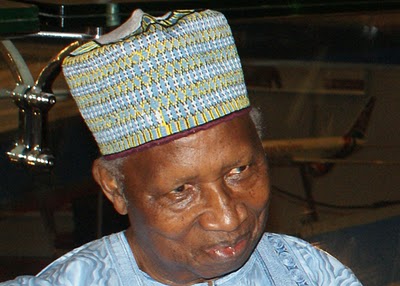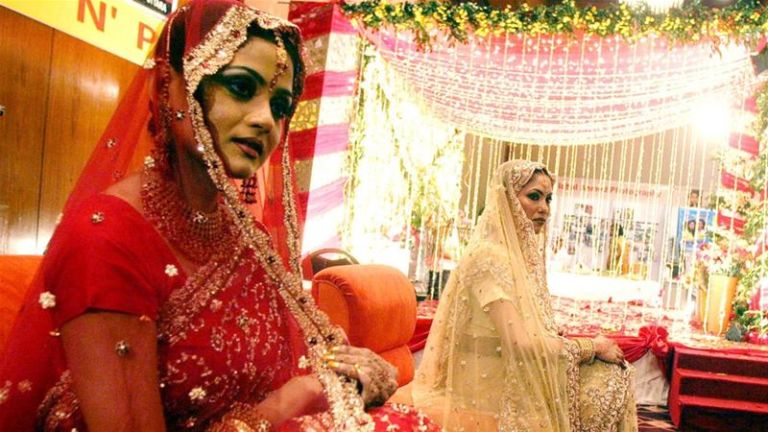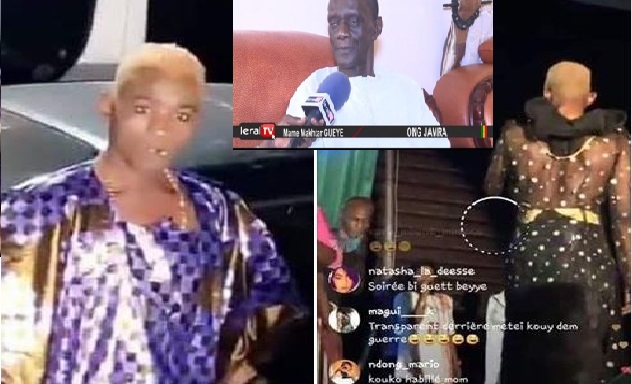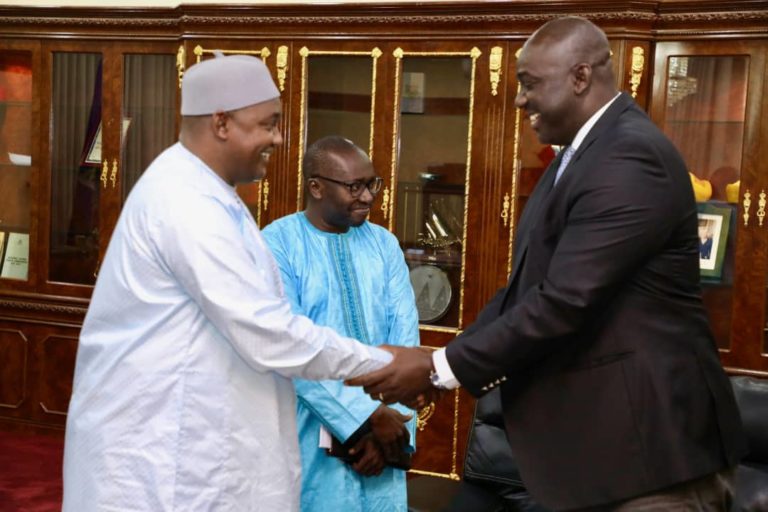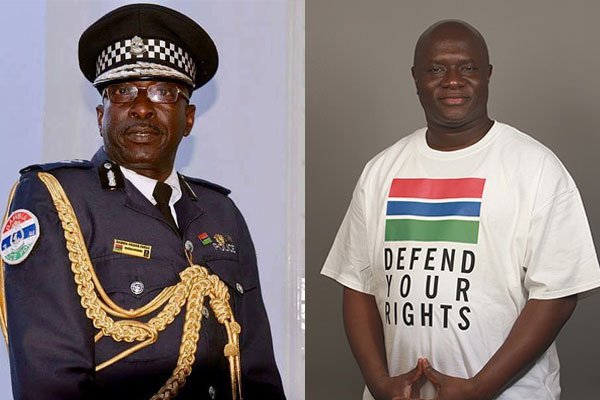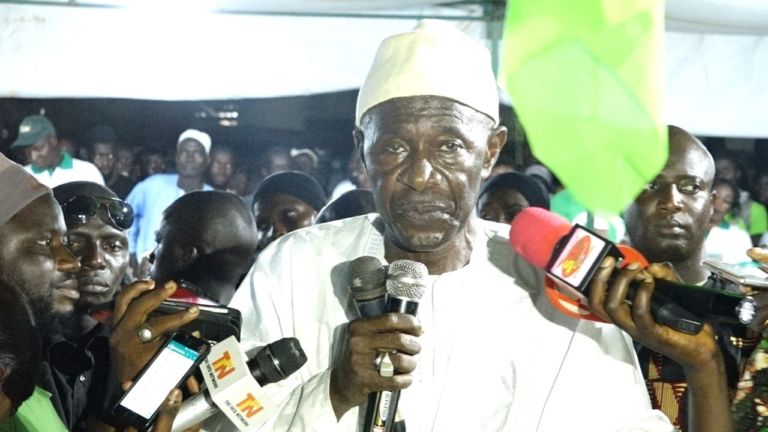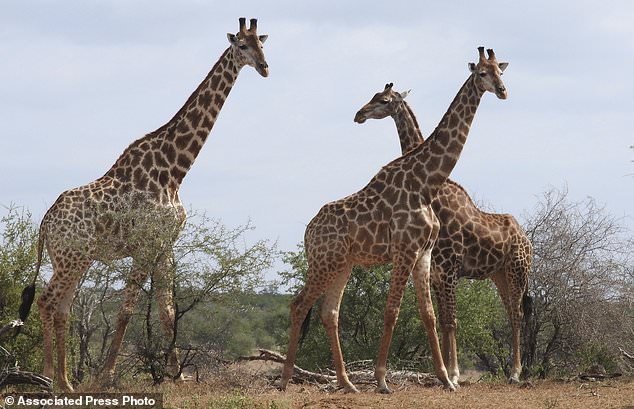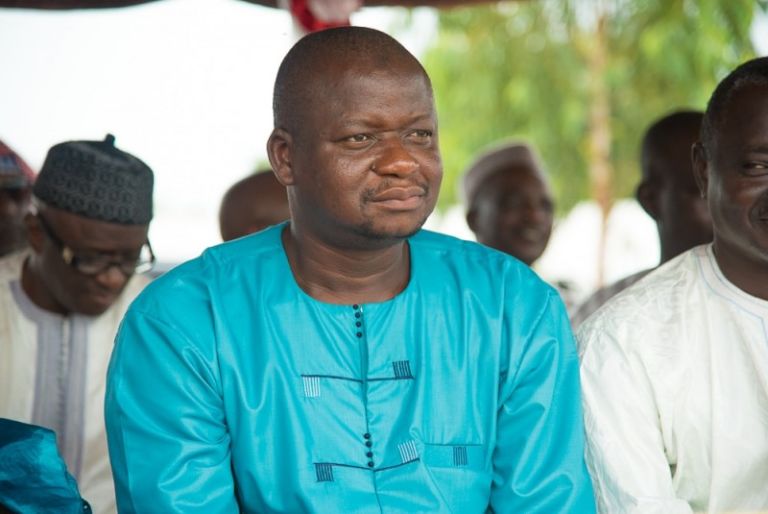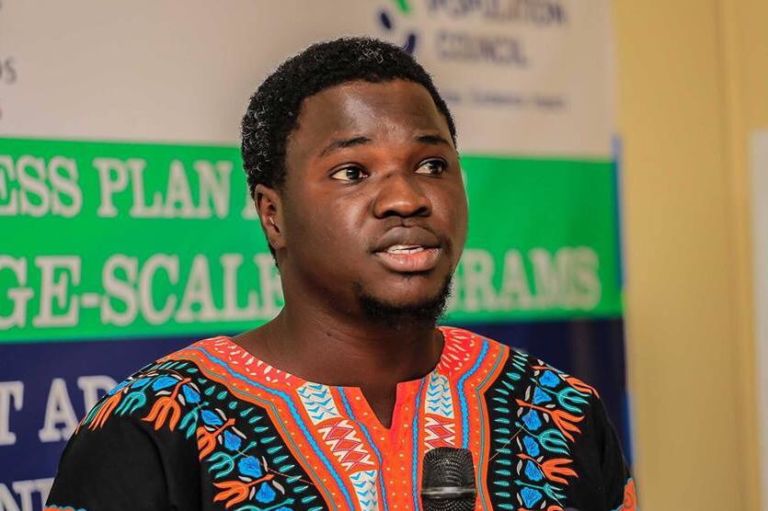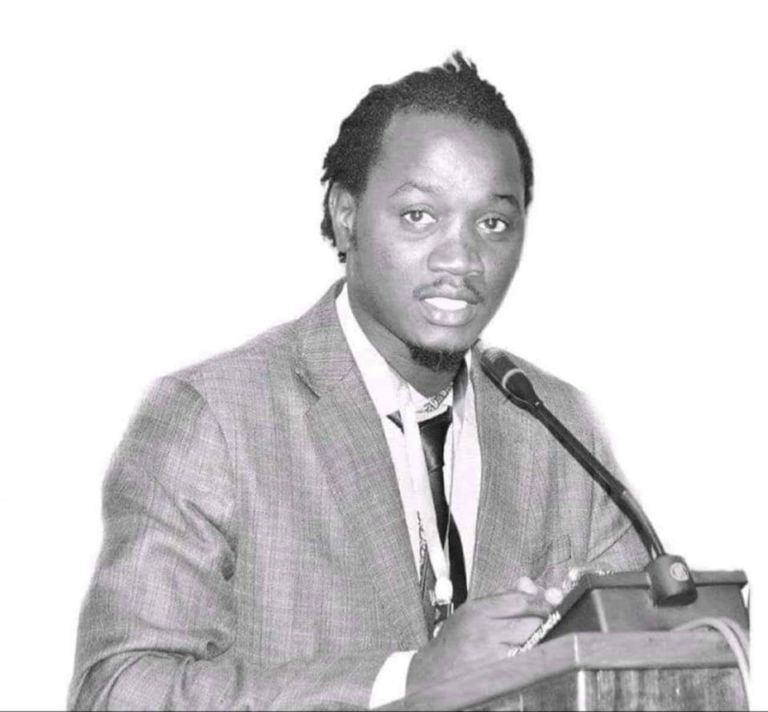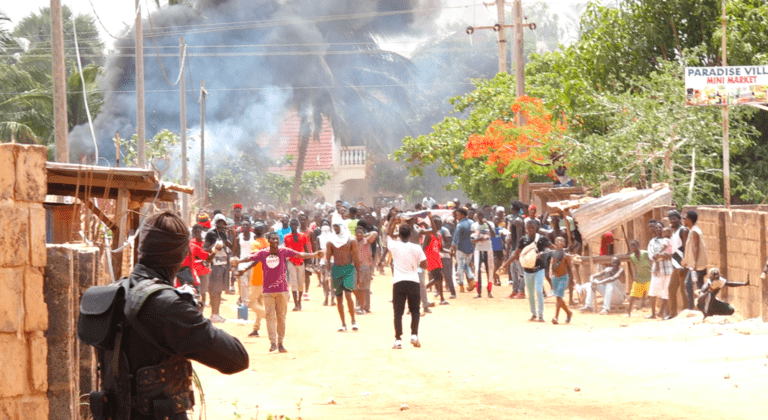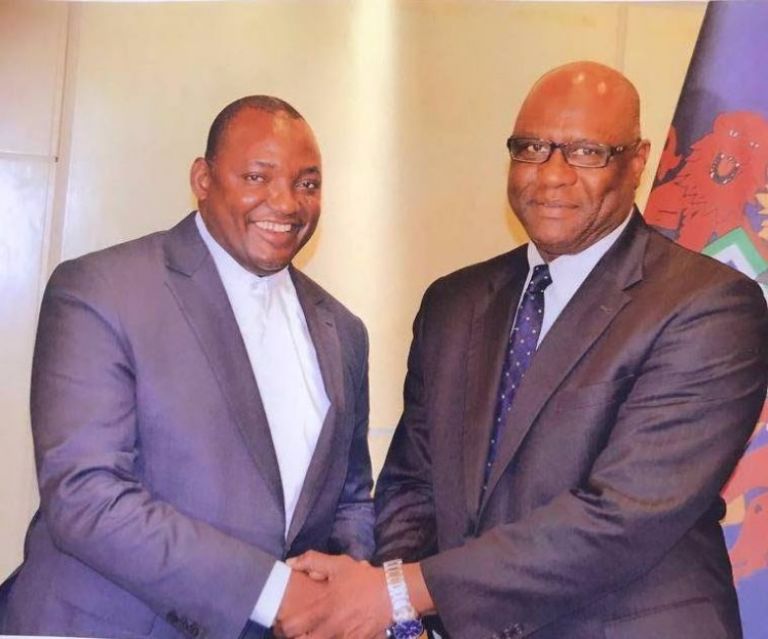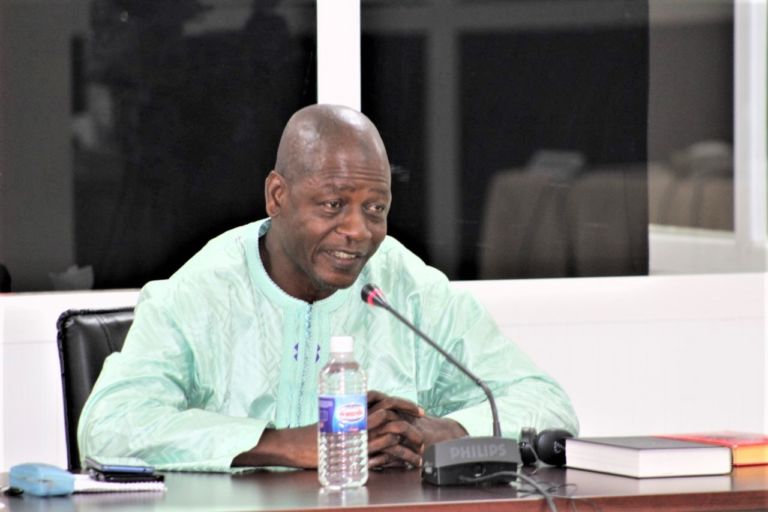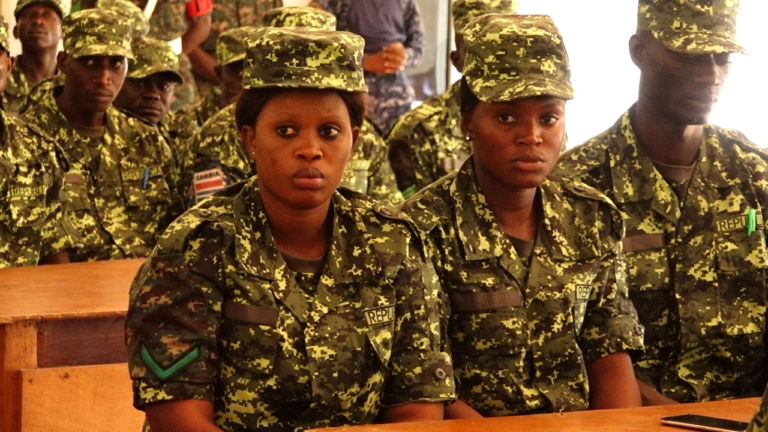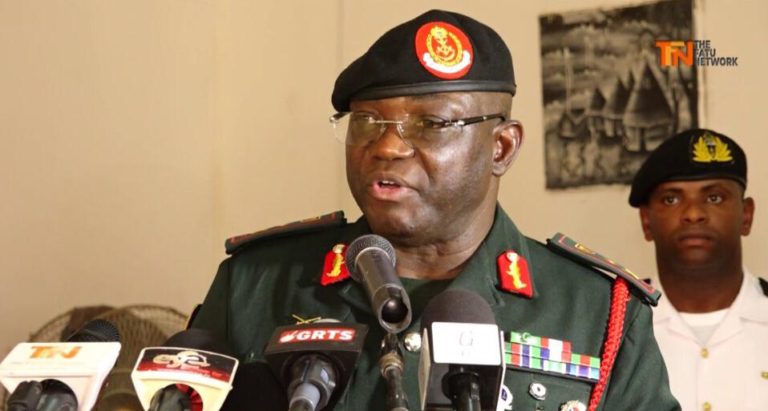Madi Jobarteh has branded Yankuba Sonko as someone who willingly aided and abetted dictatorship in The Gambia.
Yankuba Sonko has been appointed as the new interior minister of The Gambia by President Adama Barrow following his last week’s sacking of Ebrima Mballow.
In a long open letter to the former police chief titled, ‘Serve Your People According to the Constitution and Your Conscience,’ outspoken activist Madi Jobarteh said: “Your appointment as the Minister of Interior has come at a significant juncture in the history of the Gambia hence the decisions and actions you make in your new portfolio henceforth will determine not only the peace and stability of our dear motherland but also of your own fate as a son of this land. Needless to remind you that the Gambia emerged out of a brutal dictatorship of 22 years to usher in a new dispensation on 17 January 2017 with high expectations for a new environment for democracy and good governance. We did not only change that authoritarian regime for its own sake, but more importantly we did so with the intention to bring about a true system change in which abuse of power and violations of human rights will end in this country.
“In this regard what is expected of the Ministry of Interior and its allied agencies is to adhere to the rule of law to protect fundamental rights and freedoms in order to enable Gambians to hold the State accountable. It is when citizens are able to hold the State accountable that we could combat and reduce if not eradicate corruption and abuse of power, ensure efficient, effective and quality delivery of public services and guarantee prosperity in peace and calm in the country. I would expect and strongly advise that you understand your position as the Minister of Interior from this perspective and perform your duties accordingly.
“As you assume your new position it is necessary to remind you that you had been a longstanding career law enforcement officer who rose through the ranks to become the head of the Gambia Police Force at various times. You first served as IGP between March 2010 and November 2014 and your second tenure spanned from July 2015 to June 2017. This indicates that you are indeed one of the longest serving IGPs in the history of the Gambia Police Force. Most of your tenure was served under the brutal Dictatorship of Yaya Jammeh.
“Under your tenure there were several abuses of human rights perpetrated by the Police Intervention Unit (PIU) including the brutal crackdown on the 14 April 2016 Protest led by Solo Sandeng and compatriots. Your officers mercilessly assaulted them during arrest and handed them over to the NIA where Solo Sandeng was beaten to death with many more raped and tortured. The country continues to count the casualties of that incident as many of the victims have either died or continue to live in physical and psychological pain until today.
“You were also the IGP when on 16 April 2016 your men with arms clamped down on the protest led by Lawyer Ousainou Darboe and his party members when they sought to obtain the body of their colleague Solo Sandeng. Once again under your watch your men used utter violence and brute force to mercilessly beat senior citizens, women and youths for merely exercising their right to freedom of assembly as guaranteed by the Constitution. Furthermore, on 26 December 2016 you issued a directive warning citizens to seek a permit before they embark on a convoy. This directive was purposely intended to limit the right of Gambians to freely assemble and hold Yaya Jammeh to account for refusing to step down when he rejected the election results. Your directive was meant only to protect the Dictator.
“Therefore, what is distinguishable in your career Mr. Sonko is that you have comfortably, vigorously and willingly aided and abetted dictatorship in the Gambia. Now that you are appointed the Minister of Interior it is necessary that I write to you to put it to you that you are only a Public Servant whose legitimacy and authority is derived from the people. Section 1 of our Constitution clearly stipulates that the sovereignty of the Gambia resides in the people and all State institutions derive their legitimacy from the people and that these public institutions serve only on behalf of and for the welfare of the people. This is the scope and purpose of your position as the Minister of Interior that you must always remember.
“In this regard I wish to therefore urge you to ensure that your Ministry and all of its agencies place themselves on the path of the Constitution to uphold the rule of law and protect fundamental rights and freedoms. This is non-negotiable and history will judge how well or not you perform this sacred national duty. I wish to therefore call on you to ensure the urgent reform of the institutions under your purview such as the Gambia Police Force, the Gambia Prisons Services, the Gambia Immigration Department and the Gambia Fire and Ambulance Services.
“Your greatest contribution can only come from effecting system change by first and foremost reforming the legal and institutional frameworks of these agencies and building their human capacity to empower them to protect human rights. These institutions are indeed human rights protection institutions which makes your Ministry the leading human rights protection mechanism of the Gambia Government. Sadly, the Ministry of Interior and its satellite institutions have been notorious for abuse of human rights and it is now your unique opportunity to transform these institutions into true human rights protection institutions.
“To enable you to do this task successfully, I wish to advise that you review the reports of the Commission of Inquiry of the April 10 and 11 Incident as well as the 2018 Faraba Commission in order to implement their recommendations. In both reports, it has been unequivocally stated that police officers especially the PIU officers are notorious for torture, beatings and other forms of violence against citizens. For that matter the Faraba Commission went further to recommend that, ‘It is important that current personnel of the PIU officers are vetted and screened and those found to have been involved in torture and human rights abuses are removed from the Police Force.’
“Therefore, I would urge you to do just that in order to cleanse the Gambia Police Force off of torturers and police brutality. Talking about police brutality brings to the fore the urgent need to review and restructure the Anti-Crime Unit. In November 2018 I wrote a private letter to the IGP to demand an investigation and reform of the Anti-Crime Unit given the numerous allegations of human rights violations perpetrated by its officers. Until today I did not receive any response from the IGP while the Unit continues to be a subject of massive controversy due to its use of excessive force most of the time. I need not remind you that the head of this Unit Gorgui Mboob is in fact mentioned in the April 10 and 11 Commission Report as one of the officers who engaged in human rights violations at the time. Hence the need to reform this unit cannot be overemphasised.
“Mr. Sonko I will state it abundantly clear that I am neither excited nor hopeful by your appointment simply because of your abysmal track record as a career police officer. At this moment I have no trust and confidence in you because you have been a Public Servant who has perpetrated human rights abuses against our people. Under your leadership as IGP, you have failed to stand up to protect rights and uphold the rule of law but rather allowed the sovereign rights of Gambians to be trampled upon by your officers with impunity.
“For that matter if you wish to regain my trust and confidence then you would have to renew yourself by rededicating yourself to the reform of the law enforcement agencies immediately to enhance the protection of human rights. In this regard it is necessary to therefore focus on one particular right for your urgent attention. This is the right to freedom of assembly. This right is guaranteed by our Constitution. The Constitution provides that the right to demonstrate can only be restricted or limited but it cannot be denied.
“Unfortunately, all Gambian IGPs including yourself are notorious for denying Gambians the right to freedom of assembly by relying on the Public Order Act. One of those instances was when in 2010 you denied UDP to hold a political rally claiming security concerns. Let me inform you that even when the Pubic Order Act requires citizens to request a permit before embarking on a procession or use a public address system during a demonstration, you must bear in mind that ultimately the IGP must not undermine popular participation, accountability and democracy. In all of the instances in which Gambians have been denied a permit to protest there has been no incontrovertible evidence that violence would erupt. Hence the decisions by yourself and other IGPs was not based on any professional and scientific evidence. Rather your decisions have been based on political considerations in the interest of the President at the time. You must ensure that this malpractice stops immediately.
“I wish to state that indeed the intention of the Public Order Act is to allow protests to take place. That is, the Act is in favour of citizens to enjoy this right insofar as there will be no violence. For that matter it is also the duty of the IGP to make sure even if there will be violence it is contained by deploying police officers to protect the protest and both those who are part of it and those who are not part of it or counter it. This is the perspective from which the Public Order Act should be viewed and enforced.
“Therefore even though the Act empowers the IGP to deny a permit this must be the exception and not the rule as has been the case for the past 22 years! Unfortunately, the Gambia Police Force rather makes denial the rule and the norm while making the granting of permits the exception. This was why yourself and other IGPs have most of the time denied citizens a permit. This means in practice these IGPs including yourself have been major obstacles to the growth of democracy and good governance in the Gambia.
“Now is the time Mr. Sonko for you to therefore resurrect yourself and begin to establish a new and honourable legacy. Make sure that your IGP is under no political control and influence from State House in deciding what rights Gambians can enjoy or not. Make sure that the IGP and yourself are driven by only your conscience and the national interest in line with the Constitution to protect the rights of Gambians.
“Recognise that Gambians have a right to protest against the Government even if every day. Your role must be to ensure that this right is protected. During protests those who burn, loot, damage or throw stones must be arrested and prosecuted. You must not use the excuse of violent behaviour by some people to deny all Gambians their right to freedom of assembly. Stand against torture and corruption within your law enforcement agencies and insist on absolute adherence to the rule of law at all times.
“Let me also remind you that as a member of Cabinet, you bear equal responsibility for any decision made by the Cabinet and the President. Therefore, be a good public servant and advise your Cabinet colleagues and the President Adama Barrow that he must respect and protect the rights of Gambians even if those Gambians wish to criticise or protest against him.
“You have failed woefully over the years to stand up to defend the Constitution and the rule of law and the human rights of Gambians. Therefore, your recent appointment is now your unique opportunity to stand up, for the first time in your life, for the defence of the Constitution, the rule of law and protect human rights.
“I wish to assure you that so long as you stand to defend the Constitution and adhere to the rule of law and protect the rights of Gambians, I will bring back my trust and confidence in you and stand to defend you. At the same time so long as you continue to abuse our Constitution and disregard the rule of law and allow the violation of the rights of citizens by the agencies under your purview, rest assured of my continued opposition and condemnation of your actions and decisions.
“In conclusion, let me highlight to you Mr. Sonko that the Gambia is your motherland and by any moral, religious, legal and political standards you must serve none other than the Gambia and her people. No elected official from the President to the Mayor and indeed no citizen should be worthy enough for you to abuse the rights and dignity of your fellow citizens. It is already an invaluable honour and privilege to be appointed a Minister purposely to serve your people. Therefore, cherish that sacred duty and serve your people well than to allow your fellow human being to make you a pawn to abuse your fellow human beings. No position, no fame and indeed no material gains should make you sell your soul to your fellow human being. For far too long you have served the selfish interest of only one or few elected public officials to the detriment of your people. Let this appointment today be that unique opportunity to resurrect yourself and place yourself on the path to defend your own people and their Constitution. The ball is in your court.”

